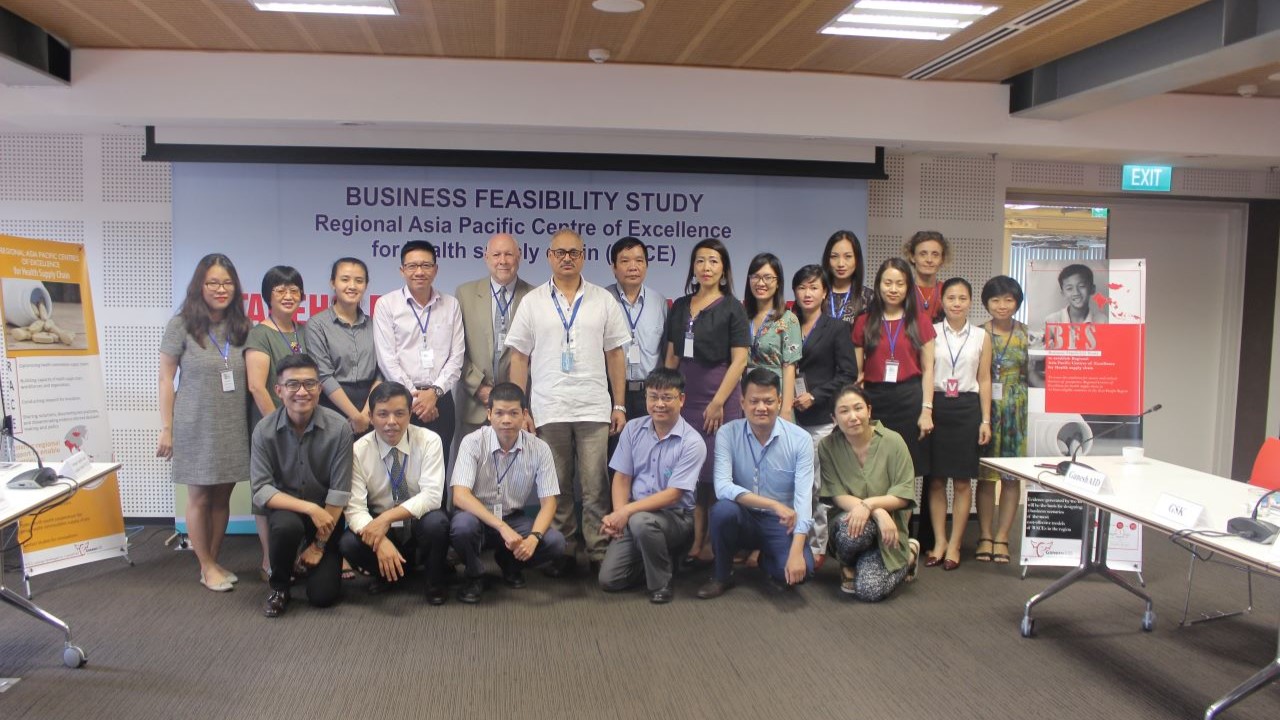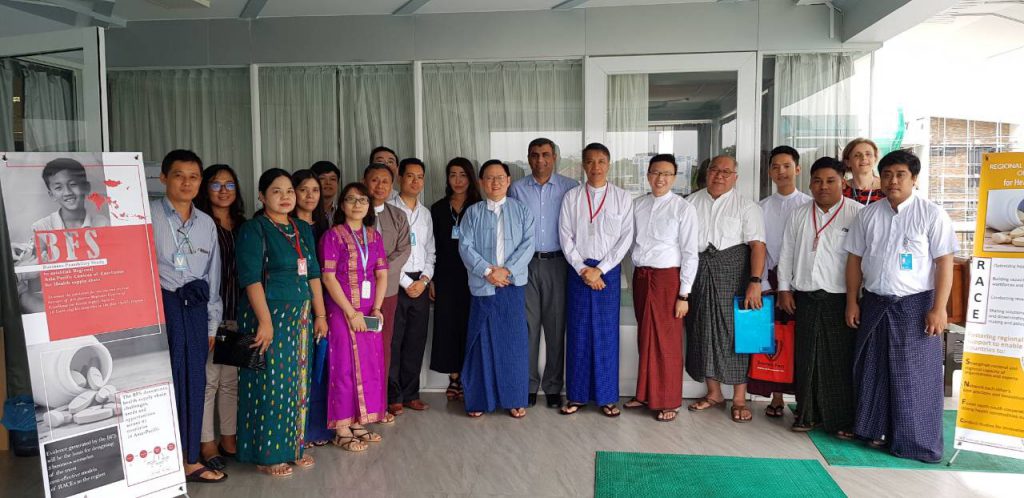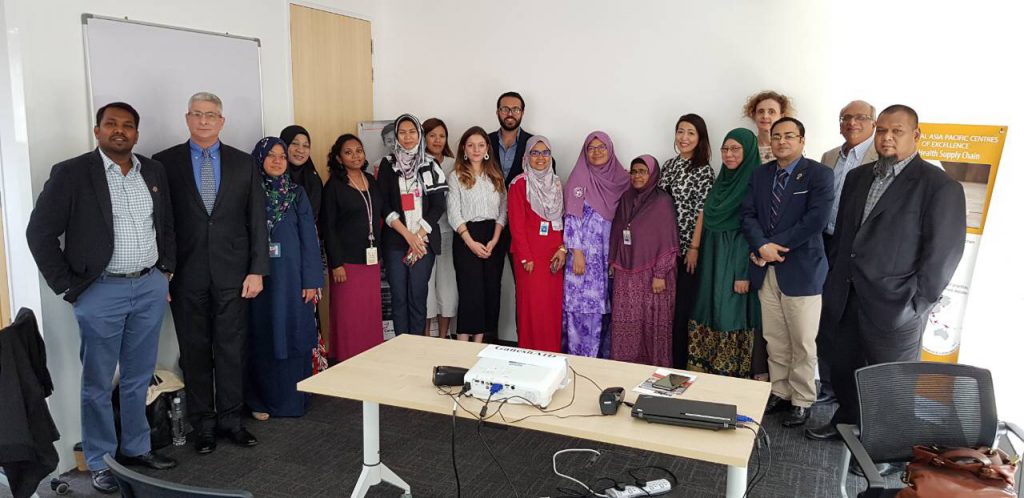
Center of Excellence for Equitable and Sustainable Use
of Vaccines and Health Commodities
The Need for a Knowledge Exchange Platform
As of 2017, major investments for building Regional Centres of Excellence (RCoE) for the health supply chain were directed to the African region (Logivac, RCE-VIHSCM, ARC). However, there has been no comparable effort in the Asia Pacific Region to set up RCoEs to support the procurement and supply chain of life-saving medicines and vaccines.
In this context, the Gavi Secretariat commissioned GaneshAID, a nonprofit consultancy firm, to conduct a Business Feasibility Study (BFS) to establish a Regional Asia Pacific Centre of Excellence (RACE) for the health supply chain. The BFS was designed and conducted in close collaboration with Gavi and its strategic partners – WHO and UNICEF – who have representatives in the BFS Project Advisory Group (PAG).
Business Feasibility Study
Objective
The general objective of the Business Feasibility Study was to assess the conditions for success and critical barriers facing the prospective Center of Excellence for health and immunisation commodity supply chains in Gavi-eligible countries in the Asia Pacific Region.
Outcome
After seven months of data collection and analysis across 18 Gavi-eligible countries, the BFS has generated a significant database of information and evidence on the challenges facing Gavi-eligible Asia-Pacific countries, as well as the need to strengthen health and immunisation supply chain systems and management capacity.
Regional Asia Pacific Centre of Excellence (RACE)
The Centre of Excellence innovation sets out the foundation for the promotion of national experiences and innovations and the linkage between country needs and novel approaches to target uneven immunisation coverage.
Our work
Setting up an instrument of best practices and innovations observatory
Bridging training needs with opportunities
Building a network and community of practices for robust health and immunisation systems
Proposed Business scenarios
Phased roll-out of RACEs
This business scenario considers the geographical specialties and needs of Gavi-eligible countries in the Asia and Pacific. This business scenario considers the limitations of a single RACE to respond to the specific training needs in South East Asia, South Asia, and the Pacific Islands.
A skills centre (consortium)
This business scenario emphasises the technical and soft competencies needed for strong supply chains in the Asia-Pacific region.
A country serves as a hub for the RACE, with host institutions working together as a consortium to cover the full spectrum of soft skills and technical skills required, all while considering the geographical specificities and needs of the 18 Gavi-eligible countries in Asia Pacific.
A RACE Secretariat or Group of Interested Parties
A RACE secretariat or group of interested parties. This model recognises the limitations of host organisations in covering all skills and technical platform requirements. It addresses the complexity of political, legal, and other risks and responds to local specialties/needs. Some specific countries could potentially be identified as priorities.
The Secretariat would essentially be a broker who bridges training and capacity-building needs with offers from institutions for such services in the Asia Pacific region.
Our Innovations Are Yours!



